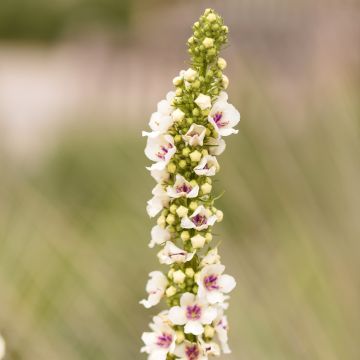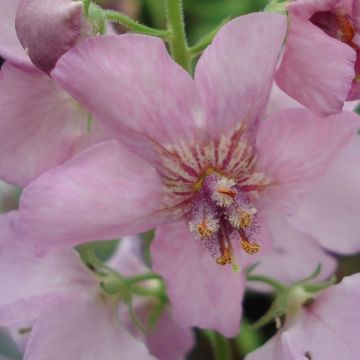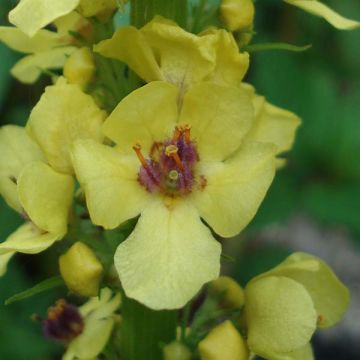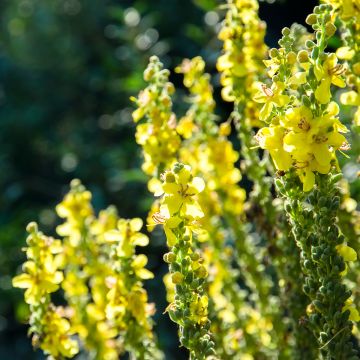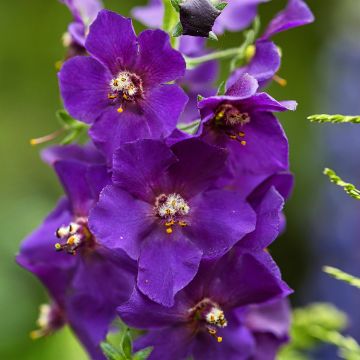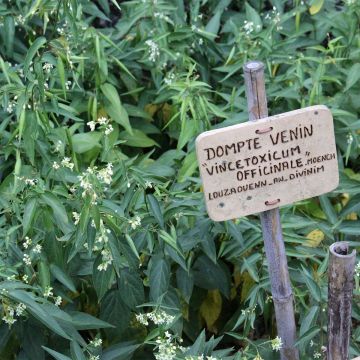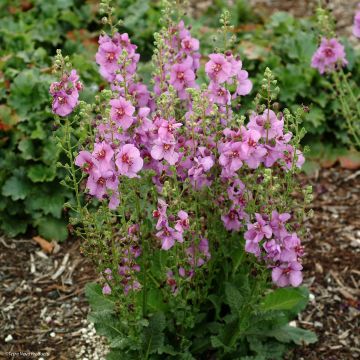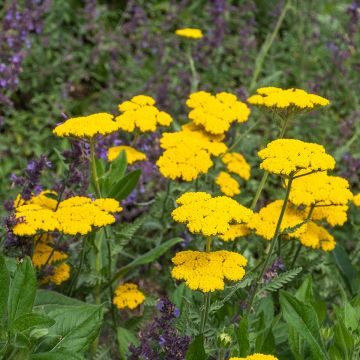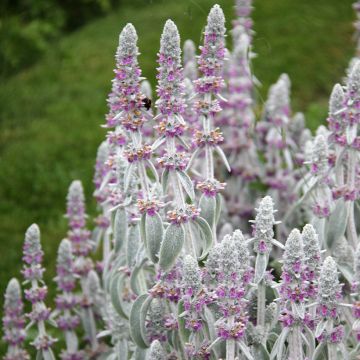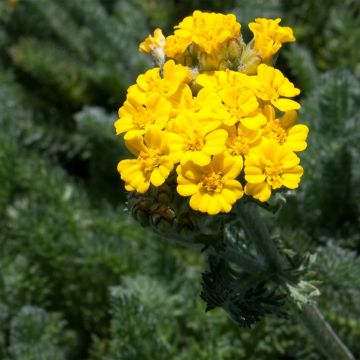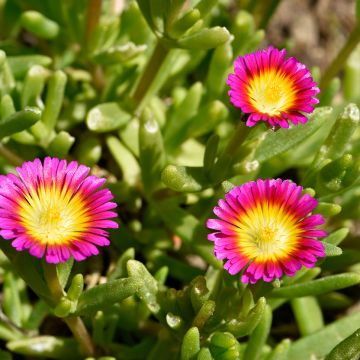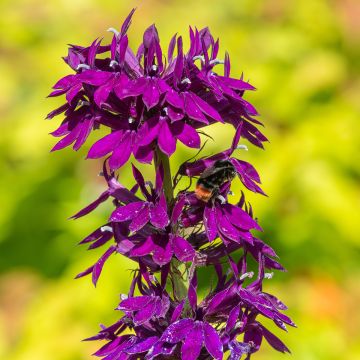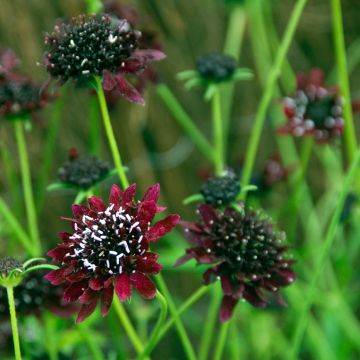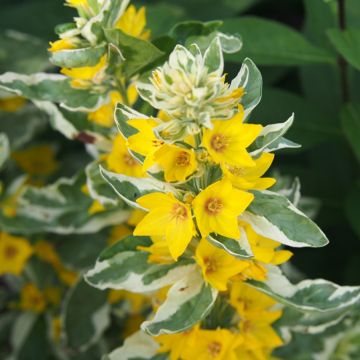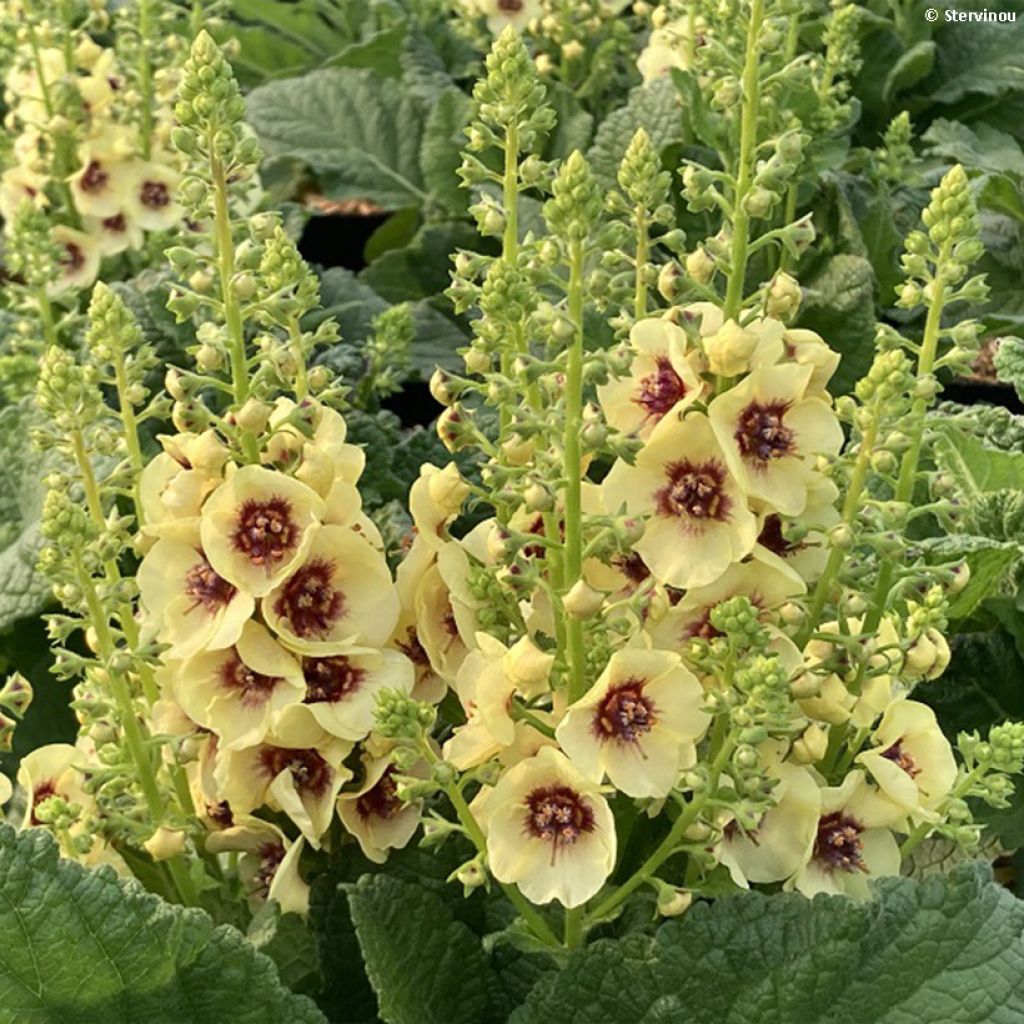

Verbascum Dark Eyes - Mullein
Verbascum Dark Eyes - Mullein
Verbascum Dark Eyes
Mullein
Special offer!
Receive a €20 voucher for any order over €90 (excluding delivery costs, credit notes, and plastic-free options)!
1- Add your favorite plants to your cart.
2- Once you have reached €90, confirm your order (you can even choose the delivery date!).
3- As soon as your order is shipped, you will receive an email containing your voucher code, valid for 3 months (90 days).
Your voucher is unique and can only be used once, for any order with a minimum value of €20, excluding delivery costs.
Can be combined with other current offers, non-divisible and non-refundable.
Home or relay delivery (depending on size and destination)
Schedule delivery date,
and select date in basket
This plant carries a 12 months recovery warranty
More information
We guarantee the quality of our plants for a full growing cycle, and will replace at our expense any plant that fails to recover under normal climatic and planting conditions.
Would this plant suit my garden?
Set up your Plantfit profile →
Description
Verbascum 'Dark Eyes' is a selection of hybrid Mullein that is very compact and floriferous, ideal for borders, small spaces, and pots. Its floral spikes filled with cream-yellow flowers with brown centres appear for several weeks if you regularly cut them back as they fade. A short-lived, hardy and easy-to-grow perennial.
The 'Dark Eyes' Hybrid Mullein belongs to the Scrophulariaceae family. It is a hybrid resulting from cross-breeding Verbascum chaixii native to central and southern Europe, the Caucasus, and Armenia, among others. This variety was recently selected in the USA. It is shorter than the cultivar 'Jackie', with larger, greyer leaves. 'Dark Eyes' will reach 30 cm (12in) high, more in fertile soil. It grows rapidly, reaching its eventual height in one month. This perennial has a rosette from which short branched floral stems emerge from June to September, in pyramidal spikes composed of cup-shaped 3 cm (1in) pale yellow flowers, closely packed together and opening here and there along the spike. The rosettes are composed of large ovate to elliptical, wavy, dark grey-green, slightly hairy leaves. Some of this foliage persists during winter. This Mullein is a bee-friendly plant. Although theoretically perennial, it is often grown as a biennial due to its short life.
Verbascum 'Dark Eyes' prefers sun and moderately fertile soil. This variety will bring elegance and lightness to borders and floral compositions on the terrace. Plant it in a rockery or in groups in a flower bed. Its rustic appearance suits slightly wild areas with small ornamental grasses and Nepeta mussinii, but it also fits in a romantic setting with dwarf roses in yellow, orange, or white. You can enjoy its splendid flowers in pots on the terrace with Nemesias or blue lobelias.
Report an error about the product description
Verbascum Dark Eyes - Mullein in pictures
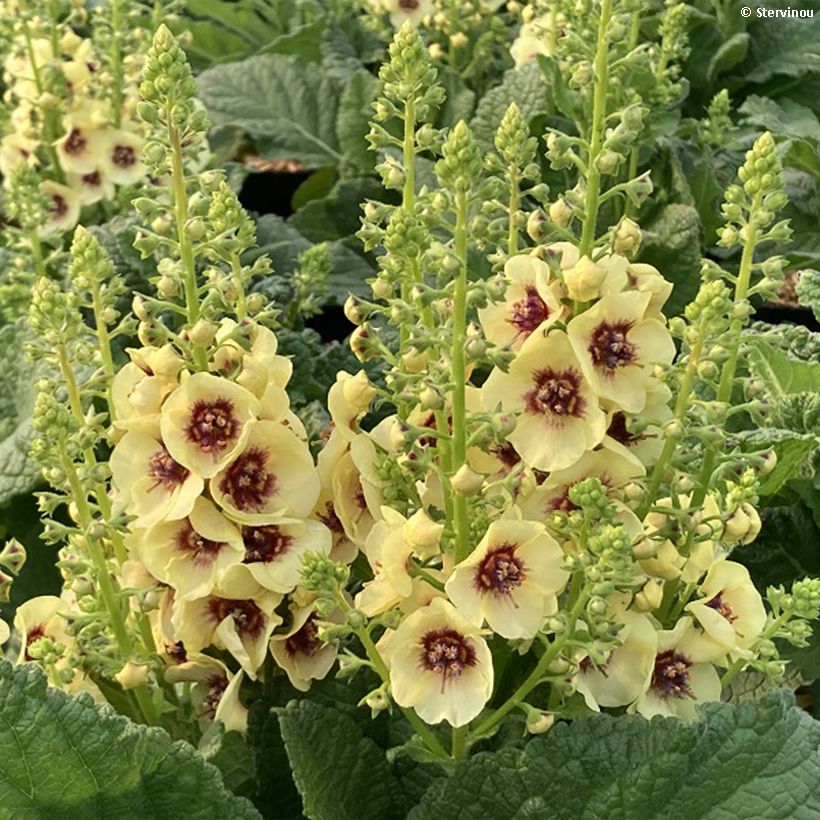

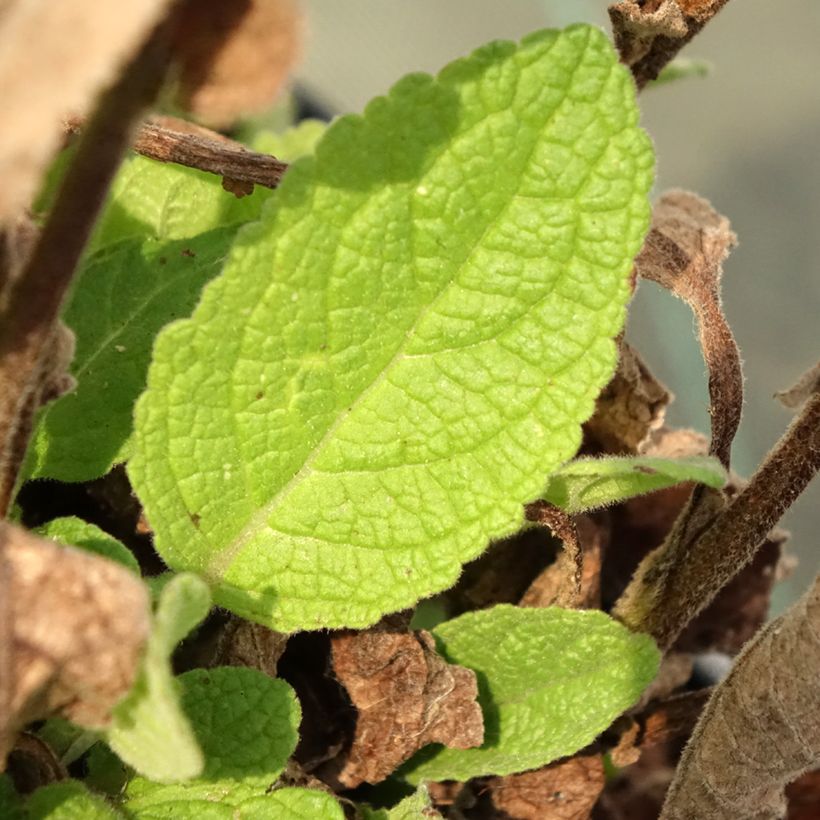

Flowering
Foliage
Plant habit
Botanical data
Verbascum
Dark Eyes
Scrophulariaceae
Mullein
Cultivar or hybrid
Other Verbascum - Mullein
View all →Planting and care
Verbascum 'Dark Eyes' should be planted in full sun, in the ground or in pots. This mullein is best planted in spring, in ordinary, light and porous, well-drained and not too rich soil. In hot and dry climates, plant in early autumn instead. It prefers a slightly alkaline, moist to dry soil, where it will readily self-sow (the flower colour will not come true). It does not tolerate soils which are waterlogged in winter. Cut the faded flower stalks at the base to encourage re-flowering and the perenniality of the plant. Prune the dry vegetation as soon as it is no longer decorative and clean the clump by the end of winter at the latest.
Planting period
Intended location
Care
This item has not been reviewed yet - be the first to leave a review about it.
Similar products
Haven't found what you were looking for?
Hardiness is the lowest winter temperature a plant can endure without suffering serious damage or even dying. However, hardiness is affected by location (a sheltered area, such as a patio), protection (winter cover) and soil type (hardiness is improved by well-drained soil).

Photo Sharing Terms & Conditions
In order to encourage gardeners to interact and share their experiences, Promesse de fleurs offers various media enabling content to be uploaded onto its Site - in particular via the ‘Photo sharing’ module.
The User agrees to refrain from:
- Posting any content that is illegal, prejudicial, insulting, racist, inciteful to hatred, revisionist, contrary to public decency, that infringes on privacy or on the privacy rights of third parties, in particular the publicity rights of persons and goods, intellectual property rights, or the right to privacy.
- Submitting content on behalf of a third party;
- Impersonate the identity of a third party and/or publish any personal information about a third party;
In general, the User undertakes to refrain from any unethical behaviour.
All Content (in particular text, comments, files, images, photos, videos, creative works, etc.), which may be subject to property or intellectual property rights, image or other private rights, shall remain the property of the User, subject to the limited rights granted by the terms of the licence granted by Promesse de fleurs as stated below. Users are at liberty to publish or not to publish such Content on the Site, notably via the ‘Photo Sharing’ facility, and accept that this Content shall be made public and freely accessible, notably on the Internet.
Users further acknowledge, undertake to have ,and guarantee that they hold all necessary rights and permissions to publish such material on the Site, in particular with regard to the legislation in force pertaining to any privacy, property, intellectual property, image, or contractual rights, or rights of any other nature. By publishing such Content on the Site, Users acknowledge accepting full liability as publishers of the Content within the meaning of the law, and grant Promesse de fleurs, free of charge, an inclusive, worldwide licence for the said Content for the entire duration of its publication, including all reproduction, representation, up/downloading, displaying, performing, transmission, and storage rights.
Users also grant permission for their name to be linked to the Content and accept that this link may not always be made available.
By engaging in posting material, Users consent to their Content becoming automatically accessible on the Internet, in particular on other sites and/or blogs and/or web pages of the Promesse de fleurs site, including in particular social pages and the Promesse de fleurs catalogue.
Users may secure the removal of entrusted content free of charge by issuing a simple request via our contact form.
The flowering period indicated on our website applies to countries and regions located in USDA zone 8 (France, the United Kingdom, Ireland, the Netherlands, etc.)
It will vary according to where you live:
- In zones 9 to 10 (Italy, Spain, Greece, etc.), flowering will occur about 2 to 4 weeks earlier.
- In zones 6 to 7 (Germany, Poland, Slovenia, and lower mountainous regions), flowering will be delayed by 2 to 3 weeks.
- In zone 5 (Central Europe, Scandinavia), blooming will be delayed by 3 to 5 weeks.
In temperate climates, pruning of spring-flowering shrubs (forsythia, spireas, etc.) should be done just after flowering.
Pruning of summer-flowering shrubs (Indian Lilac, Perovskia, etc.) can be done in winter or spring.
In cold regions as well as with frost-sensitive plants, avoid pruning too early when severe frosts may still occur.
The planting period indicated on our website applies to countries and regions located in USDA zone 8 (France, United Kingdom, Ireland, Netherlands).
It will vary according to where you live:
- In Mediterranean zones (Marseille, Madrid, Milan, etc.), autumn and winter are the best planting periods.
- In continental zones (Strasbourg, Munich, Vienna, etc.), delay planting by 2 to 3 weeks in spring and bring it forward by 2 to 4 weeks in autumn.
- In mountainous regions (the Alps, Pyrenees, Carpathians, etc.), it is best to plant in late spring (May-June) or late summer (August-September).
The harvesting period indicated on our website applies to countries and regions in USDA zone 8 (France, England, Ireland, the Netherlands).
In colder areas (Scandinavia, Poland, Austria...) fruit and vegetable harvests are likely to be delayed by 3-4 weeks.
In warmer areas (Italy, Spain, Greece, etc.), harvesting will probably take place earlier, depending on weather conditions.
The sowing periods indicated on our website apply to countries and regions within USDA Zone 8 (France, UK, Ireland, Netherlands).
In colder areas (Scandinavia, Poland, Austria...), delay any outdoor sowing by 3-4 weeks, or sow under glass.
In warmer climes (Italy, Spain, Greece, etc.), bring outdoor sowing forward by a few weeks.






























